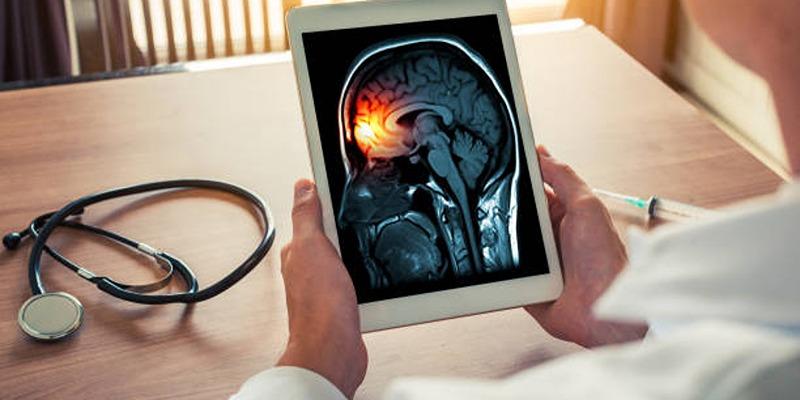Natural Remedies and Medical Treatments for Meningitis
Advertisement
Meningitis is a dangerous inflammation that affects the thin tissue of blood vessels and nerves that cover the brain and spinal cord, called meninges. They can be bacterial, viral, fungal or parasitic in origin and while viral and fungal meningitis are milder forms the bacterial is commonly the most severe and deadly form. If the condition is not detected and treated early there are other serious consequences which may include damage to the brain, loss of hearing or other complications. Although there has been advancement in medical science and doctors avail almost all the treatments, people opt for herbal cures simultaneously.
Understanding Meningitis:
Meningitis is an inflammation of the meninges – the protective membranes which cover the brain and spinal cord – that is usually caused by an infection. However, it may occur in any person, but some individuals, including infants, the elderly, and Immunocompromised individuals, are more vulnerable.
Causes of Meningitis:
Meningitis can arise from various sources, each with its own implications:
- Bacterial Meningitis: The most severe and fast-acting form, bacterial meningitis is caused by pathogens such as Neisseria meningitidis, Streptococcus pneumoniae, and Haemophilus influenzae.
- Viral Meningitis: Generally less severe than its bacterial counterpart, viral meningitis is typically triggered by enteroviruses, the herpes simplex virus, or the mumps virus.
- Fungal Meningitis: A rare form of meningitis, this occurs when fungi, such as Cryptococcus, infect the protective membranes around the brain and spinal cord.
- Non-Infectious Meningitis: Not all cases of meningitis stem from infections.
Key Symptoms of Meningitis to Recognize:

Meningitis symptoms can appear suddenly and require immediate medical attention if any of the following signs are present:
- A sudden, high fever
- Severe, persistent headache
- Stiff neck or difficulty moving the neck
- Sensitivity to light (photophobia)
- Skin rash (in certain cases)
- Seizures
- Confusion or changes in mental clarity
While these symptoms are commonly associated with meningitis, they can also resemble those of other conditions. For an accurate diagnosis, it’s essential to consult a healthcare professional without delay.
Medical Treatments for Meningitis:
Meningitis treatment varies based on its cause, and prompt medical care is essential, especially for bacterial meningitis, which can escalate rapidly and become life-threatening. Below is an overview of the most common treatments for managing meningitis:
1. Antibiotics for Bacterial Meningitis
Antibiotics are the cornerstone of bacterial meningitis treatment. The initial approach often uses broad-spectrum antibiotics until the specific bacteria causing the infection is identified. Commonly prescribed antibiotics include:
- Ceftriaxone or Cefotaxime: Frequently used for bacterial meningitis due to their effectiveness.
- Vancomycin: Often prescribed for treating antibiotic-resistant bacterial strains.
- Penicillin: Used when the infection is caused by bacteria such as Streptococcus pneumoniae or Neisseria meningitidis.
2. Antiviral Medications for Viral Meningitis
Viral meningitis is generally less severe than its bacterial counterpart and often resolves without specific medical intervention. However, in severe cases or when the virus is identified, antiviral medications can be helpful. These include:
- Acyclovir: Primarily used for herpes simplex virus-related meningitis.
- Ribavirin: Effective against certain viral infections, such as respiratory syncytial virus (RSV).
3. Antifungal Treatments for Fungal Meningitis
Fungal meningitis requires antifungal medications, as it tends to be more challenging to treat and may demand prolonged therapy. Common antifungal treatments include:
- Amphotericin B: A potent antifungal medication for severe fungal infections.
- Fluconazole: Typically used for less severe cases or as follow-up therapy after Amphotericin B.
4. Supportive Care
Supportive care is vital for all forms of meningitis, especially viral and fungal cases. It focuses on managing symptoms and ensuring recovery. Key components of supportive care include:
- Pain Management: Over-the-counter medications like acetaminophen or ibuprofen can help alleviate headaches and reduce fever.
- Hydration: Maintaining proper hydration is critical, particularly for patients experiencing fever or vomiting.
- Rest and Monitoring: Adequate rest and continuous monitoring ensure the patient’s condition does not worsen.
Natural Remedies to Support Meningitis Recovery:

While medical treatment is crucial for managing meningitis, certain natural remedies can complement conventional care by strengthening the immune system, reducing inflammation, and promoting recovery.
1. Stay Hydrated with Herbal Teas
Maintaining proper hydration is essential for helping the body fight infections and recover from meningitis. Herbal teas, such as chamomile and ginger, not only keep you hydrated but also offer additional anti-inflammatory benefits.
- Chamomile Tea: Renowned for its calming properties, chamomile tea can help alleviate headaches and reduce inflammation.
- Ginger Tea: Ginger’s natural anti-inflammatory and anti-nausea properties can ease symptoms like vomiting and discomfort.
2. Support Gut Health with Probiotics
A healthy gut plays a vital role in immune function, and probiotics—beneficial bacteria—can bolster gut health while enhancing the body’s ability to fight infections. Incorporate probiotic-rich foods such as yogurt, kefir, and fermented vegetables to help aid recovery from meningitis.
3. Boost Immunity with Vitamin C and Zinc
Vitamin C and zinc are essential nutrients that support immune system function, helping the body combat infections and recover more effectively.
- Vitamin C: Found in citrus fruits, strawberries, and bell peppers, vitamin C acts as a powerful antioxidant and supports the body’s defense against infections.
- Zinc: Crucial for immune system health, zinc can be sourced from nuts, seeds, legumes, and whole grains.
4. Harness the Power of Turmeric and Curcumin
Turmeric, particularly its active compound curcumin, is celebrated for its potent anti-inflammatory properties. Studies suggest that curcumin can help reduce inflammation, potentially easing symptoms of meningitis. Add turmeric to meals or enjoy it as a soothing turmeric tea to leverage its benefits.
5. Prioritize Rest and Stress Management
Rest is a cornerstone of recovery from any illness, and meningitis is no exception. Quality sleep and adequate downtime allow the body to heal and restore energy. Additionally, managing stress through techniques like deep breathing, meditation, or yoga can strengthen the body’s ability to fight infections and promote overall well-being.
Conclusion:
Meningitis is a serious and potentially life-threatening condition, but with timely medical intervention and proper care, recovery is often possible. Bacterial meningitis demands immediate treatment with antibiotics, while viral and fungal forms are addressed with antivirals or antifungals. Alongside conventional treatments, supportive measures such as staying hydrated, getting adequate rest, and incorporating immune-boosting nutrients may aid the recovery process.
On this page
Understanding Meningitis: Causes of Meningitis: Key Symptoms of Meningitis to Recognize: Medical Treatments for Meningitis: 1. Antibiotics for Bacterial Meningitis 2. Antiviral Medications for Viral Meningitis 3. Antifungal Treatments for Fungal Meningitis 4. Supportive Care Natural Remedies to Support Meningitis Recovery: 1. Stay Hydrated with Herbal Teas 2. Support Gut Health with Probiotics 3. Boost Immunity with Vitamin C and Zinc 4. Harness the Power of Turmeric and Curcumin 5. Prioritize Rest and Stress Management Conclusion:Advertisement












